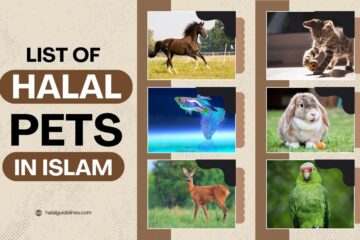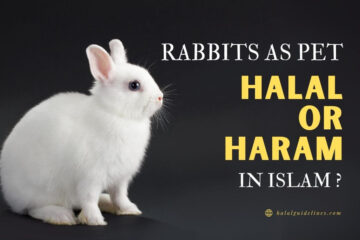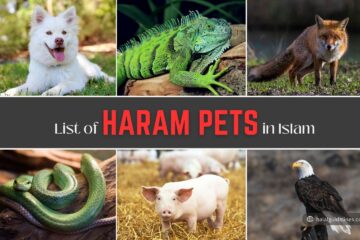Why Muslims Don’t Eat Bear Meat (5 Simple Reasons)
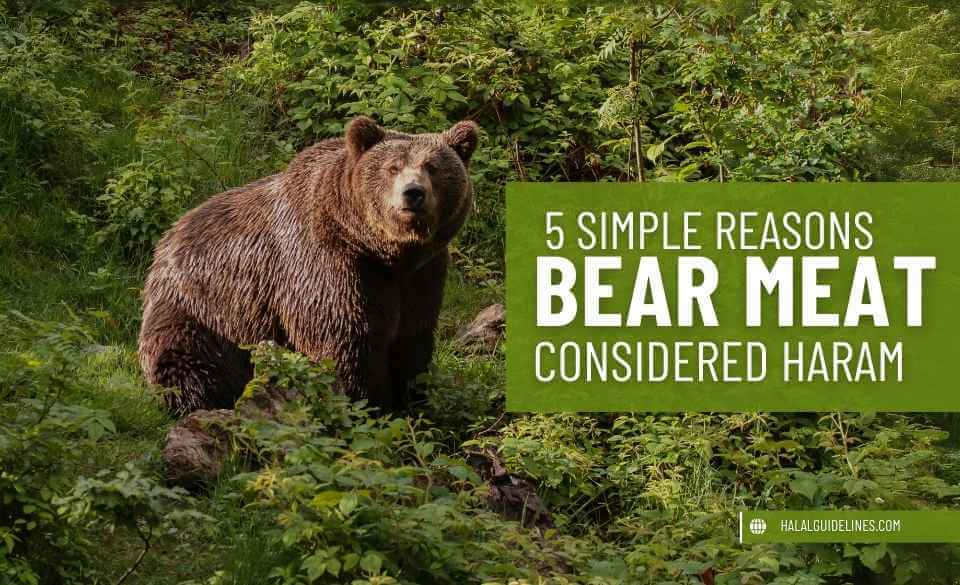
In Islam, dietary guidelines are established to make sure that what Muslims consume is clean, safe, and spiritually pure. Eating bear meat, in the case of a polar bear or black bear, is considered haram (forbidden) for several reasons that align with Islamic principles.
Below are the detailed reasons why bear meat is not allowed:
1. Fanged Predator Rule:
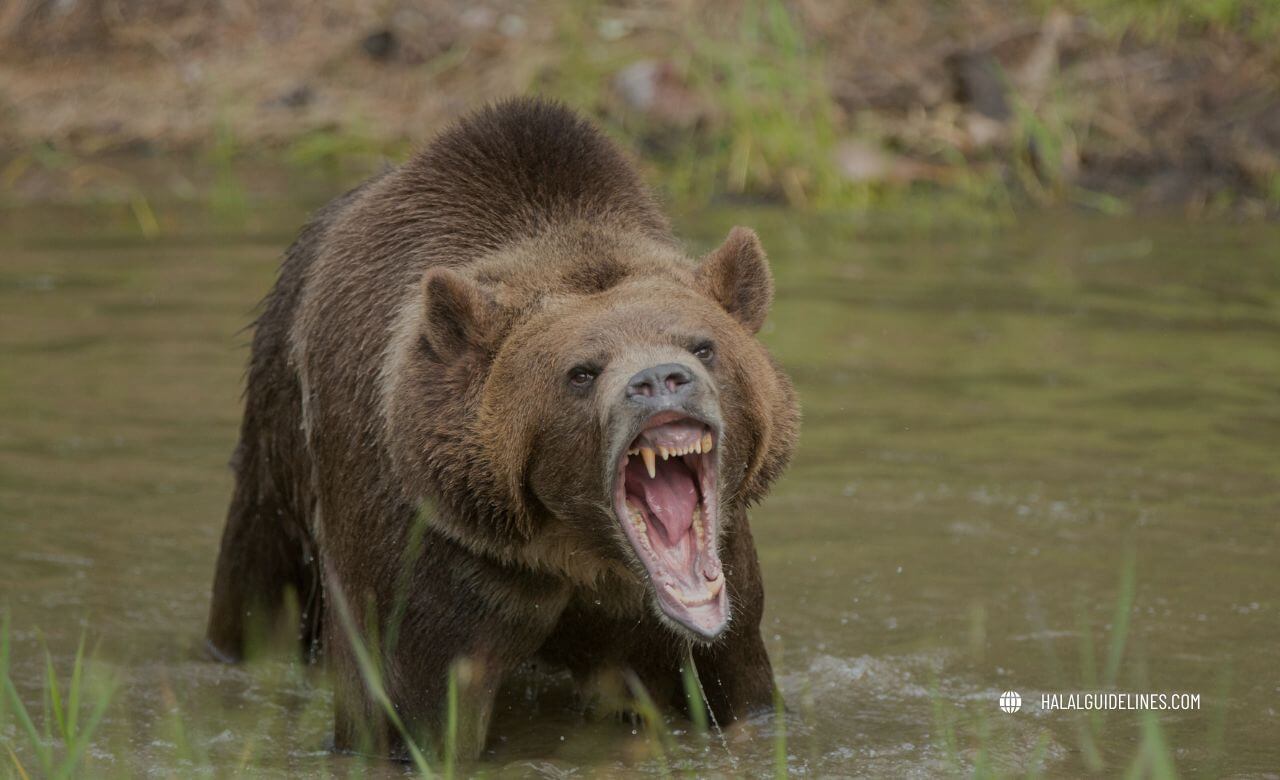
Bears have big, sharp teeth called fangs. In Islam, animals with fangs that hunt other animals are usually not okay to eat. This rule helps keep Muslims from eating animals that might be dangerous or unhealthy. Bears are strong predators that use their fangs to catch and eat other animals. This puts them in a category of animals that Islam generally considers off-limits for food.
2. Hoof Type Matters:
Islamic food rules often look at an animal’s feet. Animals with split hooves, like cows, are usually okay to eat. But bears don’t have split hooves. They have paws with claws, which puts them in the “not allowed” group. Bears’ paws are designed for climbing and catching prey, not for grazing like halal animals.
3. Unclean Diet:
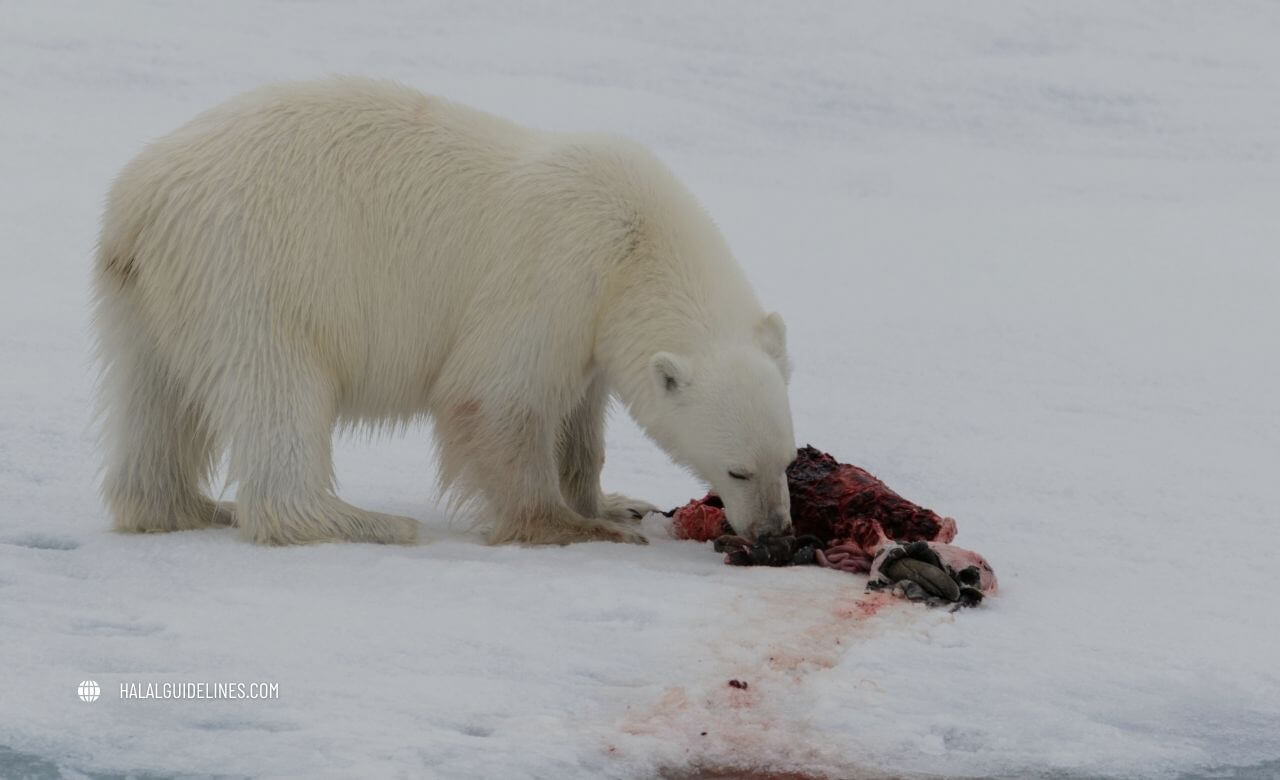
Bears are opportunistic feeders, meaning they don’t just hunt but also scavenge for food, including decaying meat and other impure sources. The consumption of such animals is considered haram because their diet often involves impurities, which makes their own meat unclean and unsuitable for Muslims.
Check Out More Knowledgeable Topics:
4. Safety Concerns:
Bears can be dangerous to humans, and Islam cares about keeping people safe. Unlike common meats, bear meat isn’t easily found in markets. To get it, people usually have to hunt bears themselves, which is very risky. Bears are powerful animals that can easily hurt or kill people. They live in wild, hard-to-reach areas, making hunting them even more dangerous.
Islam teaches that human life is precious and should be protected. The religion wants to keep its followers safe from unnecessary risks. Hunting bears puts a person’s life in danger just for meat that isn’t needed for survival.
5. Lack of Tradition in Halal Diet:
Bears have never been part of the traditional halal diet among Muslims. Historically, Muslims have consumed animals that are considered clean and have specific characteristics outlined in the Quran and Hadith. The lack of historical consumption of bears reinforces their status as haram.
By following these rules, Muslims try to eat in a way that fits with their religious beliefs. These reasons work together to explain why bear meat is considered haram, or not allowed, in Islam. The rules help guide Muslims in making food choices that align with their faith and keep them healthy and safe.
Halal or Haram Status of Animals to Eat For Muslims
In Islam, there are clear guidelines regarding which animals are halal (permissible) to eat and which are haram (forbidden). These rules help Muslims maintain a diet that is clean, ethical, and spiritually pure.
List of Animals Haram to Eat:
Below is a list of animals that are haram for Muslims, along with the reasons why they are not allowed:
| Animal | Reason |
|---|---|
| Lion | Lions are wild animals that hunt and kill other animals, making them unsafe to eat. |
| Pig | It is considered impure and is strictly forbidden in the Quran. |
| Dog | Dogs are viewed as impure animal in Islam and are not suitable for consumption. |
| Snake | It is dangerous and venomous, posing a threat to humans. |
| Eagle | It catches and eats other animals with its sharp claws. which makes it haram to eat |
| Wolf | It hunts other animals and is very dangerous to humans. |
| Fox | It feeds on animals that may be unclean or dead, making it unsuitable to eat. |
| Crocodile | It is a dangerous predator, known for attacking and eating other animals. |
| Hyena | It feeds on dead animals and has an unclean diet. |
| Vulture | It eats decaying animals, which makes it unfit for consumption. |
| Cat | Though loved as pets, cats are not suitable for eating in Islam. |
List of Animals Halal to Eat for Muslims
There are many animals that are halal (permissible) in Islam, meaning they are clean, healthy, and safe to eat.
Here’s a list of halal animals along with reasons why they are allowed:
| Animal | Reason |
|---|---|
| Cow | Cows are clean herbivorous animals, commonly consumed and healthy. |
| Sheep/Goat | These animals are herbivores and are traditionally eaten in Islam. |
| Chicken | It is a clean bird, widely accepted, and safe to eat. |
| Fish | Pure, clean, and allowed in all Islamic teachings. |
| Camel | Camel is safe, clean, and traditionally consumed by Muslims. |
| Rabbit | Rabbit is a clean herbivorous animal, safe for eating. |
| Deer | Deer live in the wild but are plant-eating animals, clean and healthy. |
| Quail | This is a clean bird, widely accepted for consumption. |
| Duck | It is a clean bird and safe to eat in Islam. |
| Pigeon | This is a pure bird and allowed for Muslims to eat. |
Eating halal animals brings blessings while avoiding haram animals helps maintain purity in line with Islamic teachings.
Final Wording
As Muslims, we should always try to do things that Allah likes and avoid things He doesn’t like. Choosing the right foods to eat is one way we can follow Allah’s guidance in our daily lives. By staying away from haram animals like bears and pigs, and eating halal animals like cows and chickens, we show our respect for Islamic teachings.
It’s important to remember that these food rules are there to help us, not to make our lives harder. When we are not sure about in case an animal is halal or haram, it’s always best to ask a knowledgeable person or avoid it to be safe.
May Allah guide all Muslims to make choices that please Him, including in what we eat. Let’s pray that our whole Muslim community can follow these rules and choose things that Allah likes for us.


